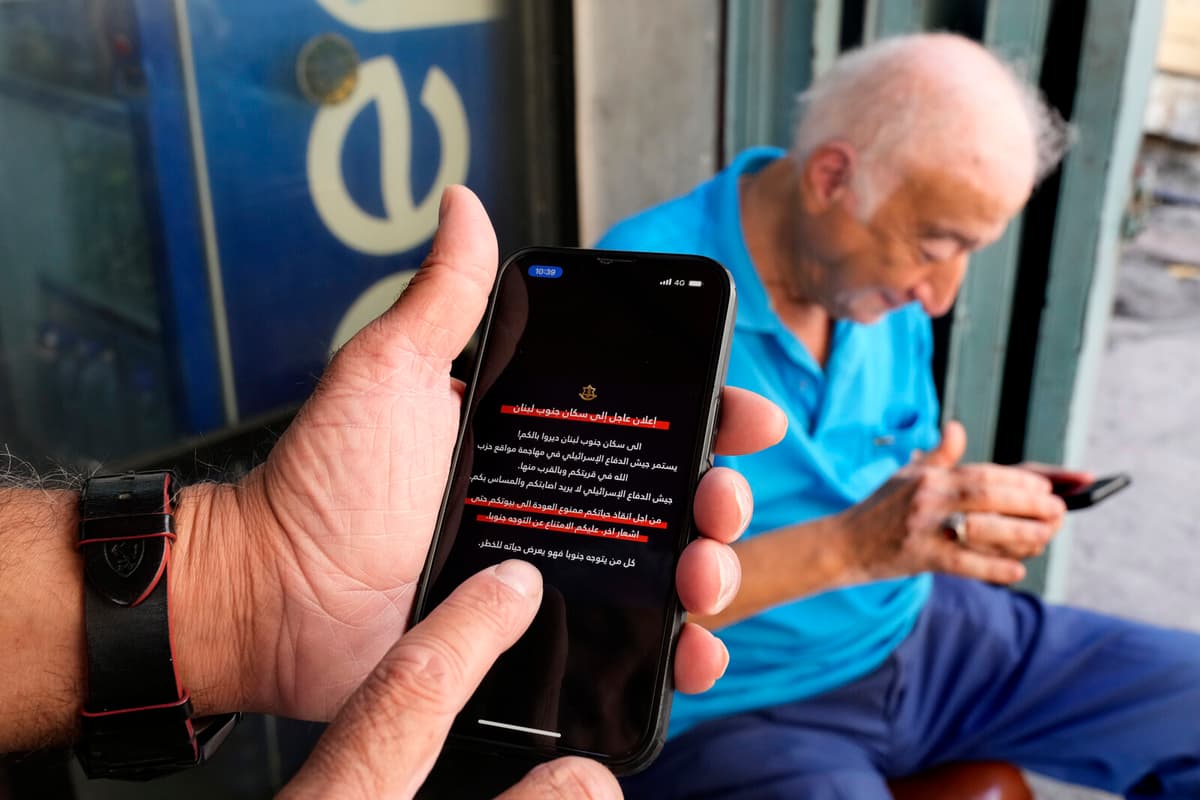The clock was 03 when Moein Shreif was woken up by a neighbor a couple of weeks ago, warning him that Israel was planning to strike a nearby building in the middle-class suburb where he lives south of Beirut.
Shreif, his wife, and their three children quickly fled the multi-story building.
Only a few minutes after they sat down in the car, the explosions were heard, he told AP later that day, when he returned to his neighborhood to see the smoking ruins that remained.
As you can see, I didn't even have time to dress properly, says Moein Shreif, still in pajamas.
Almost daily warnings
It was in the middle of last month that the low-intensity warfare that has been going on between Hezbollah and Israel since October last year escalated.
On September 23, Israel made 80,000 calls to Lebanon, likely with recorded warnings of impending airstrikes, according to Imad Kreidieh, head of the country's telecommunications company. The calls caused panic. Schools were closed and people rushed home from work early.
The day ended as the deadliest in terms of airstrikes in Lebanon in several decades, with over 500 killed, according to Lebanon's Health Department. Since the fighting broke out in 2023, around 2,200 people have been killed in Lebanon – most of them in the past few weeks.
Since then, Israel has issued warnings of new attacks on social media almost daily, with the aim of reducing civilian casualties.
The warnings usually involve a call to evacuate certain buildings, neighborhoods, or villages immediately – often followed by nighttime airstrikes that, according to Israel, target Hezbollah targets in those areas.
Mass displacement criticized
Most warnings come first on social media, for example, the Israeli military's account on X, and are then reported in Lebanese media. Before daytime airstrikes, warnings are rarely issued, writes AP.
For almost a year, Israel's attacks were mainly directed at communities along Lebanon's border, far from the capital and its densely populated suburbs.
But recently, the risk for Beirut residents – who previously felt relatively safe – has increased, with areas there becoming the subject of increasingly frequent airstrikes warnings.
Moein Shreif says that his neighbor woke him up about five minutes after the Israeli military issued a warning against his neighborhood on X.
He considers himself lucky – if he hadn't woken up in time, he fears that he and his family would have been killed.
AP has not been able to establish whether anyone else was injured or killed in the attack that destroyed the building where Moein Shreif lived and the one next to it.






